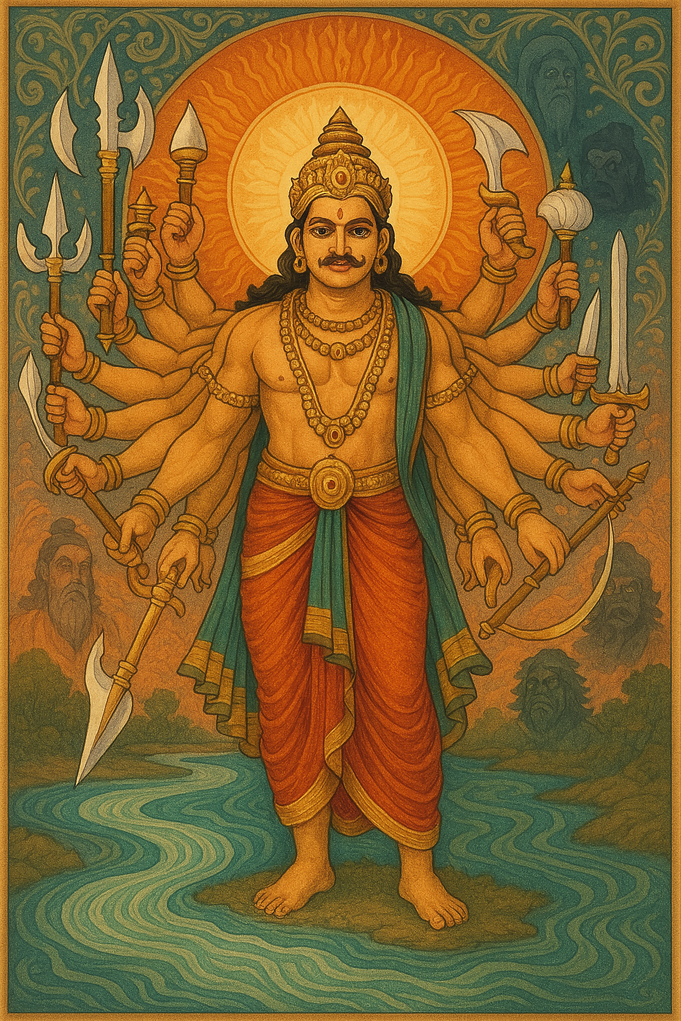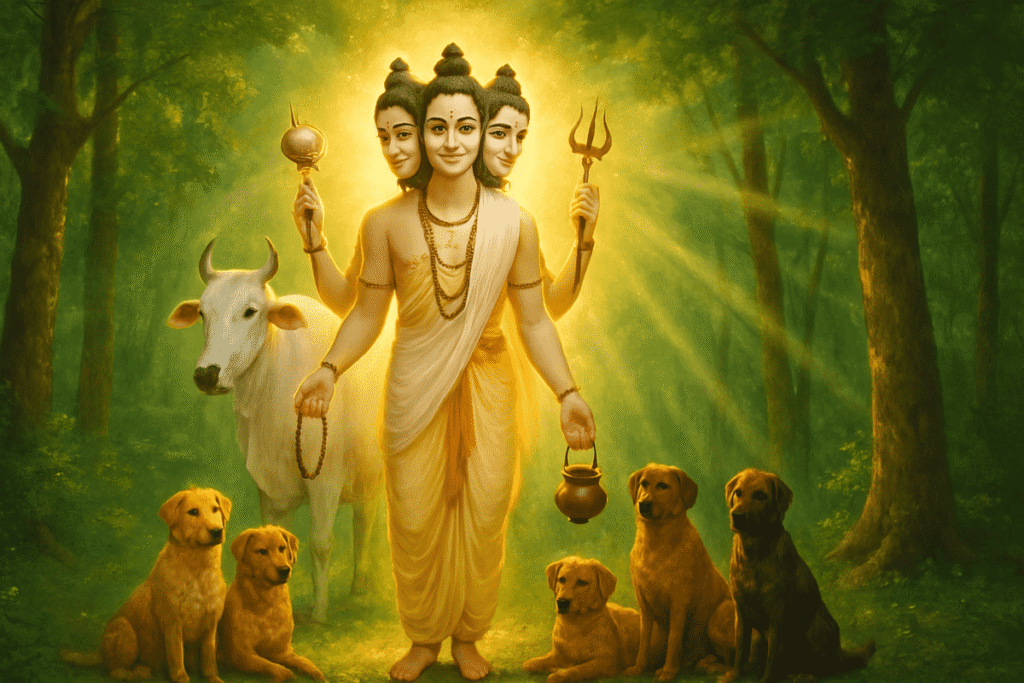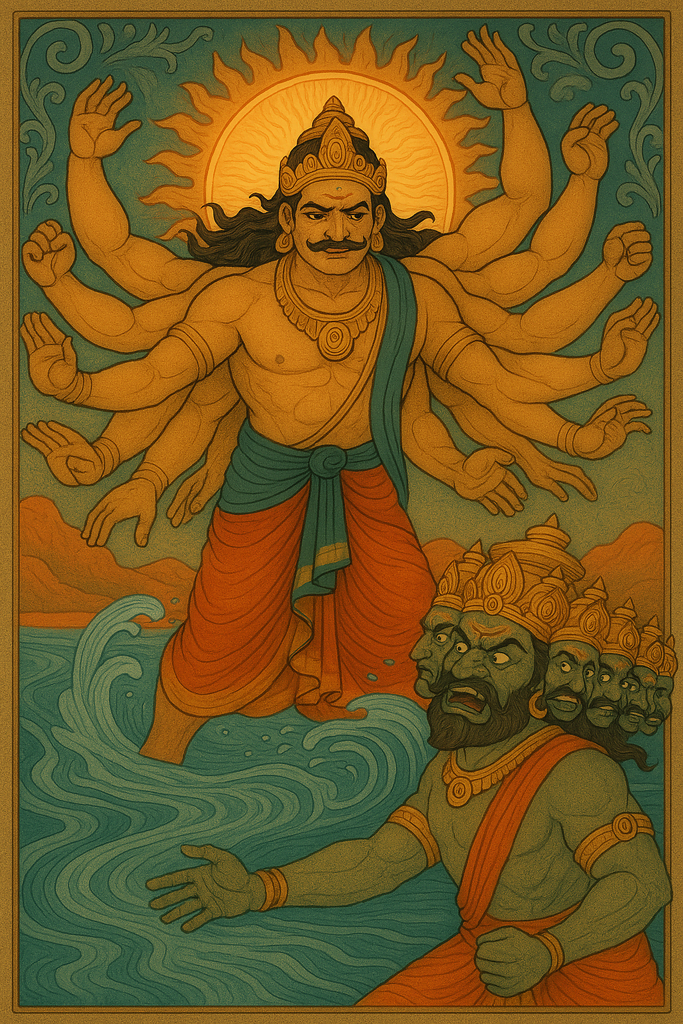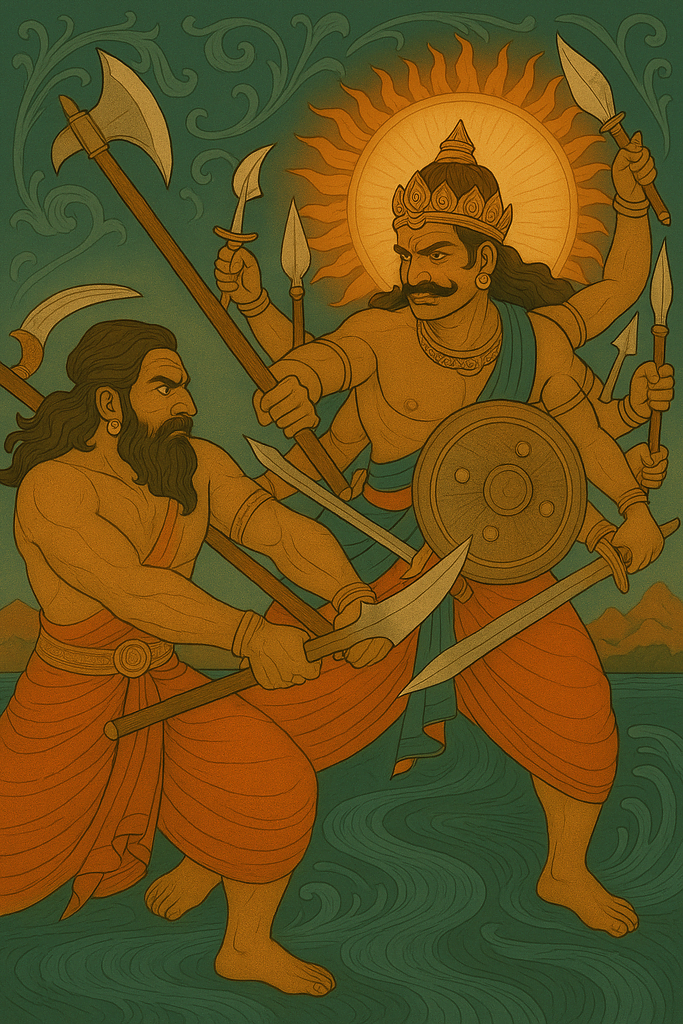Who Was Sahasrarjuna Maharaj?
Sahasrarjuna Maharaj, or Kartavirya Arjuna, often referred to as Sahasrabahu Arjuna or “Arjuna with a thousand arms,” was a legendary king in Hindu mythology, known for his thousand arms and immense strength. He ruled the Haihayas kingdom, a branch of the Yadava dynasty, from his capital, Mahishmati, on the Narmada River in present-day Madhya Pradesh, as detailed in sources like Wikipedia: Kartavirya Arjuna. His story, found in texts like the Mahabharata and Puranas, highlights his devotion, power, and eventual downfall, making him a fascinating figure in ancient tales.
According to ancient scriptures like the Mahabharata and the Puranas, he was not only powerful but also deeply spiritual. As a result, his story continues to inspire many even today.

His Family and Kingdom
Sahasrarjuna was born to King Kritavirya and Queen Padmini. He married Manorama, and together they had sons including Jayadhvaja and Talajangha.
| Relation | Names |
| Father | King Kritavirya |
| Mother | Queen Padmini |
| Wife | Manorama |
| Sons | Jayadhvaja, Talajangha, others |
Mahishmati: More Than Just a Capital
Interestingly, Mahishmati wasn’t just a political capital. It was a cultural and spiritual hub as well. Some even believe it inspired the kingdom seen in the movie Baahubali, although the stories are quite different.
Because of its location on the Narmada River, the city thrived during his reign. It stood as a symbol of power, beauty, and justice.
Devotion and Divine Powers of Sahasrarjuna Maharaj
Shasrarjuna didn’t gain his powers by birth alone. Instead, he performed intense penance to please Lord Dattatreya, a divine form of Brahma, Vishnu, and Shiva combined.
As a reward, he received:
• A thousand arms
• A golden chariot that moved at will
• Supernatural strength to rule justly
Clearly, his devotion brought him not only strength but also divine protection.

When He Defeated Ravana

One of the most popular stories about Sahasrarjuna is his battle with Ravana, the demon king of Lanka.
One day, while playing with his wives in the Narmada River, he blocked the river’s flow using his many arms. Coincidentally, this disturbed Ravana’s meditation on the riverbank.
Naturally, Ravana reacted in anger. However, Sahasrarjuna easily defeated and captured him. Nevertheless, when Sage Pulastya requested mercy, Sahasrarjuna released Ravana, showing compassion despite his power.
His Rise and Then His Pride
Over time, Sahasrarjuna ruled an enormous empire. Some ancient texts say he ruled over seven continents and much of the known world.
However, with great power came great pride. Eventually, he grew arrogant. He began mistreating others. Therefore, what started as a golden era slowly turned into a reign of fear.
As his pride increased, so did the number of enemies he created.
Parashurama and the Final Battle
His downfall began when his soldiers killed Sage Jamadagni, who was the father of Parashurama, a fierce avatar of Lord Vishnu.
In response, Parashurama vowed revenge. Consequently, he waged war against Sahasrarjuna. After a brutal battle, Parashurama finally defeated and killed him. In addition, he went on to destroy the Kshatriya warrior class for 21 generations.
Eventually, Parashurama retreated to Mount Mahendra to perform penance.

Worship and Legacy Today of Sahasrarjuna Maharaj
Despite his tragic end, Sahasrarjuna Maharaj remains a hero to many. In fact, the Savaji community, especially in Karnataka and across India, worship him as an ancestor.
Every year, his followers celebrate his birthday during:
- Kartika Massa
- Sapthami Tithi
- Shravana Nakshatra
Notably, the Shri Raja Rajeshwar Sahasrarjuna Temple in Maheshwar, Madhya Pradesh, remains a sacred site where devotees honor his legacy.
Thank you for your sharing. I am worried that I lack creative ideas. It is your article that makes me full of hope. Thank you. But, I have a question, can you help me?
Thank you for your sharing. I am worried that I lack creative ideas. It is your article that makes me full of hope. Thank you. But, I have a question, can you help me?
Can you be more specific about the content of your article? After reading it, I still have some doubts. Hope you can help me.